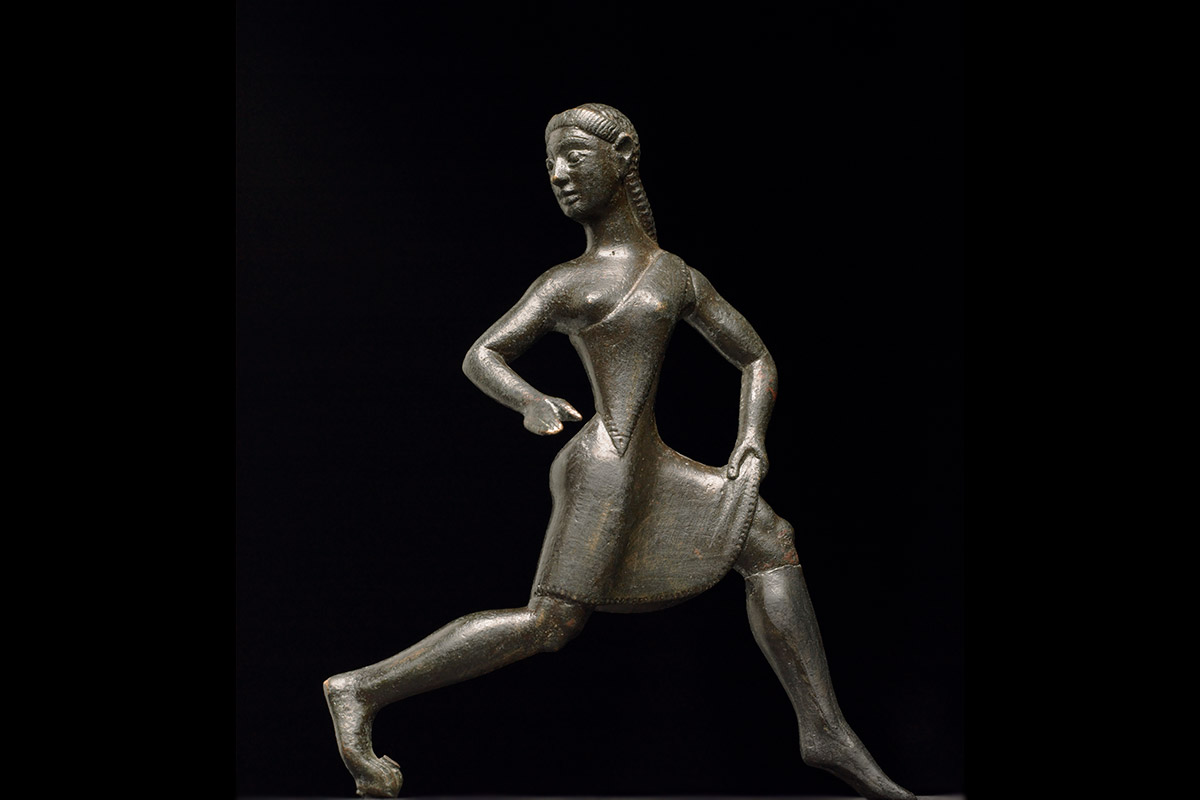Women in the Ancient World
ANME 377 with Prof. Ellen Millender explores gender, sexuality, and power in ancient societies.
Wandering wombs. Murdering mothers. Calculating queens. The lives of women in the ancient Mediterranean were far more complex, and more fluid, than is often portrayed. This course, Ancient Mediterranean Studies 377, investigates the female experience in the Mediterranean from the eighth century BCE to the first century CE. We begin with the striking cast of female characters in Homer's Odyssey, Sappho's famous poetic fragments, and the unforgettable protagonist of Euripides' Medea. We examine medical texts on the wandering womb and the frightening female body, an Athenian speech that recounts the life of a prostitute named Naeara, and a rich supply of evidence on women in Ptolemaic Egypt. We read the fictitious letters that the Roman author Ovid penned from famous heroines to their lovers, such as Penelope's letter to Odysseus, and learn about the female members of the Julio-Claudian dynasty in imperial Rome.
Over the course of the semester we closely analyze literary, documentary, and archaeological evidence that illuminates ancient ideas about the female gender, attitudes toward women, women's daily lived experience, the female life cycle, and the various practical and symbolic roles that women performed in the ancient Mediterranean. Topics covered in this class include scientific knowledge and folklore concerning both gender and sexuality, the construction of the feminine in ancient literature and art, philosophical treatments of gender, and the political, legal, economic, and social status of women in archaic and classical Greece, in the Hellenistic Greek world, and in the Roman Republic and early Empire.
“I absolutely love the material that we cover in this course,” says Prof. Ellen Millender. “From Homer's Odyssey to Athenian pottery to inscriptions of female gladiators! How cool is that? What I particularly love about the course is how it takes the students to societies that are in many ways so alien from our own but are at times also disturbingly familiar in terms of their gender mores.”
Prof. Millender is the Omar & Althea Hoskins Professor of Greek, Latin, and Ancient Mediterranean Studies and Humanities at Reed College, where she has taught since 2002. She has published on many aspects of Spartan society, including literacy, kingship, military organization, and women. Her recent work includes chapters on Spartan women and kingship for the Blackwell Companion to Sparta and articles on the heroization of the Spartan princess Cynisca, Thucydides’ treatment of Spartan speech, and Spartan commanders in Xenophon’s Anabasis. Forthcoming publications include studies of the Athenian Xenophon’s treatment of Spartan obedience, Spartan female luxury in Plato’s Laws and Aristotle’s Politics, and Spartan leadership.
Tags: Academics, Courses We’d Love To Take, Diversity/Equity/Inclusion
